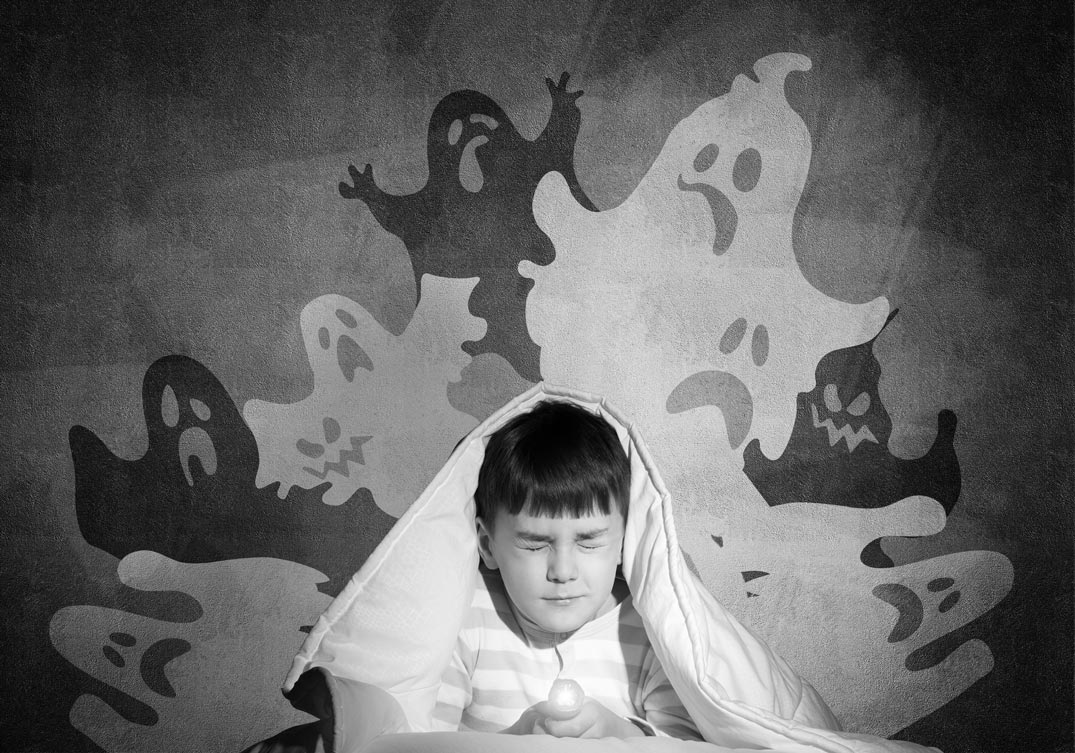From Morocco: My child lost appetite for food and talk What shall I do?

By: Magida Ait Laktawi
The small girl, Hind, frowned before she hid her head between her knees and remained silent for a long time. She refused to answer the frequent questions her mother asked her.
“I want to get out and play. I miss my teachers and my school friends. When will this lockdown is over so I can visit my grandmother?” she complained.
Hind’s mother told Tiny Hand, “I couldn’t move a muscle. Her questions have shocked me and made me sad. But I tried to pull myself together and assured her that this situation will not last for long.”
This 7-year-old girl remained locked in her room for weeks during the lockdown imposed on the people in Morocco since the 20th of last March to control the COVID-19 outbreak. She could only leave her room to go to her mom. Her only resort was the colors and drawings. Eventually, she lost appetite for food and talk, which has made her mother very worried about her.
Psychologically disturbed children
The behaviors demonstrated by Hind are abnormal while she used to be such a dynamic, energetic girl. Her reaction seems very natural for Moroccan psychologist Faisal Al-Tahari. It is an obvious reflection of the tension and anxiety that generally affect children during the quarantine.
In her interview with Tiny Hand, Al-Tahari pointed out that the children affected by the quarantine have suffered a decline in their activities and movements. As such, a child who once used to laugh and play around would become extrovert, lonely, secluded, depressed, and socially distant from his siblings and family members. His activities become limited to watching T.V. and playing with tablets.
Children’s anxiety and tension would reach high levels in light of other symptoms such as nail biting, pulling hair out from their scalp or their eyebrow, and involuntary urination. Such behaviors demonstrate the great impact of quarantine and the accompanying lockdown have on them at home.
Parents are a source of hope and reassurance
In such a situation, parents play a crucial role in communicating feelings of reassurance to their children. In this regard, the psychologist says that it is necessary for parents to explain the health condition that the world is living to their children in a simple way, how to prevent the disease, the reasons for staying at home without leaving for school, sports club, stadium, or parks.
He recommends that the explanation should fit children’s perception level without resorting to a language that exceeds their level of understanding. At the same time, it should be free from intimidation such as mentioning that it is a deadly epidemic that has claimed a large number of victims across the world.
“That is to avoid the children’s infection-related disorders or their lack of confidence that that virus threats have been eliminated when the quarantine is over and the people’s return to normal life activities,” the psychologist from Rabat city explained.
The psychologist urged parents to relieve the pressure on their children because children spend two thirds of their time in play activities, which is very important and essential for growth. Now children are deprived of playing with their friends outdoors or practicing sports activities. This makes it incumbent upon them to play and share other activities with their children.
He continued, “It is difficult that parents impose a harsh program on their children, such as setting fixed dates for bedtime and studying. We should approach them more emotionally and reduce their boredom.”
Sharing activities with children matters
Regarding the recommended activities for children at home, Al-Tahari stressed that it would be better to have a variety of activities according to a certain program that includes study and other entertainment-related activities. He strongly recommended that we should share them coloring workshops, watching children’s movies, cooking workshops, and prepare the dishes they love with them.
“Today and more than ever, our children need us to share them the details of their life so they would feel that we are living with them in the same world. We should not divide our home into two separate worlds: one for the adults and another for the young,” Al-Tahari concluded his remarks.
Tags
Related Posts
Video of Girl Reporting Rape by her Paternal Uncle, Neighbor Shocks Moroccans
A video of a girl, aged 13, has shaken the Moroccan society powerfully as she assured, with uncontrollable tears, that she was raped and sexually assaulted by her paternal uncle and a neighbor. …
March 6, 2021Crime Shocks Morocco: Murderer, Rapist of Child Adnane Sentenced to Death
“I apologize and want the Moroccan people and Adnane’s parents to know the truth about what happened, so that I can have a clear conscience. I did not rape Adnane, but kidnapped him because I was in need of money….
January 22, 2021


